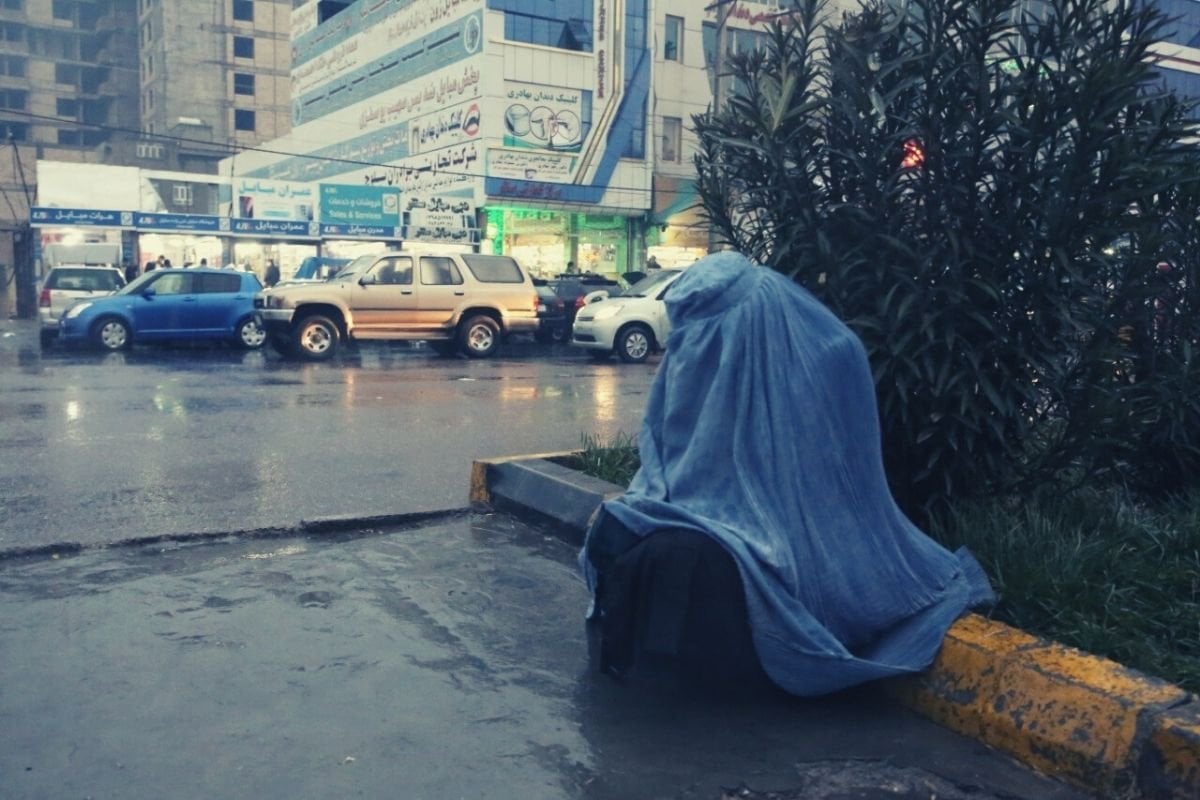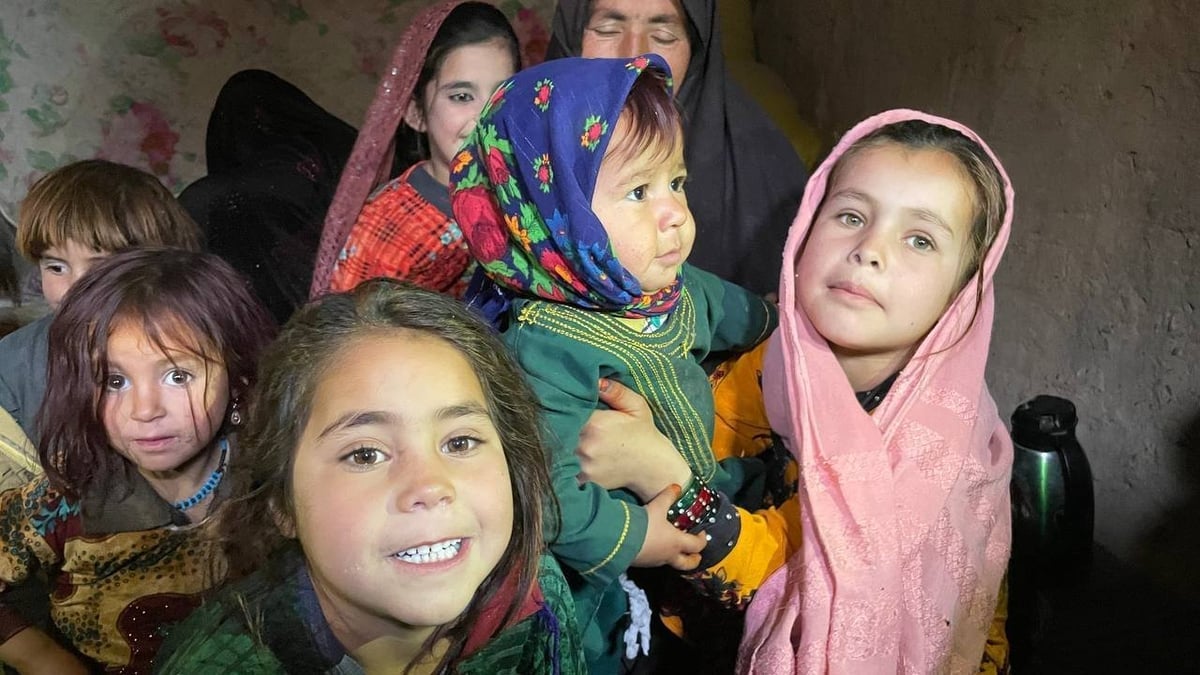
On August 15, 2021, the lives of Afghan women were turned inside out in the worst possible way.
The world watched on in horror as the Taliban took Afghanistan, reinstating themselves and their oppressive, violent, misogynistic regime.
Under their past government, which was overthrown by the US-led invasion in 2001, it was considered a "crime" to be born a woman.
Progress for women once they were gone was slow but steady. In the years after international intervention, many schools opened their doors to girls, and women went back to work. A new constitution for women's rights was created in 2003 and in 2009 the country adopted the Elimination of Violence Against Women (EVAW) law. Women had lives, and futures and dreams.
 Afghan girls living in poverty in Herat in January 2022. Image: Bilal Guler/Anadolu Agency/Getty.
Afghan girls living in poverty in Herat in January 2022. Image: Bilal Guler/Anadolu Agency/Getty.With their return, the Taliban promised they'd be different this time. They promised to write laws to ensure women could participate in public life under their new reign.

Top Comments